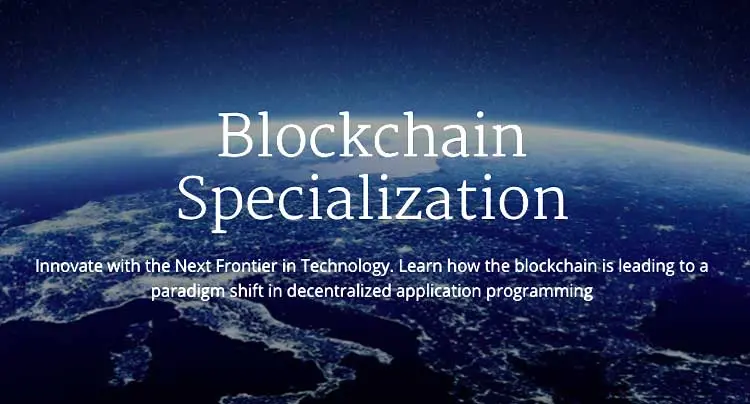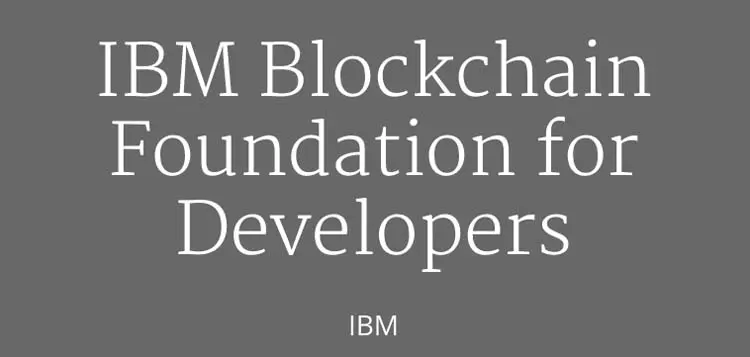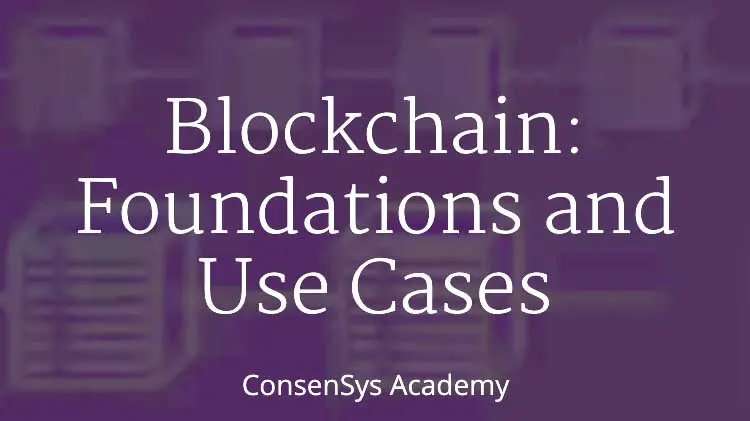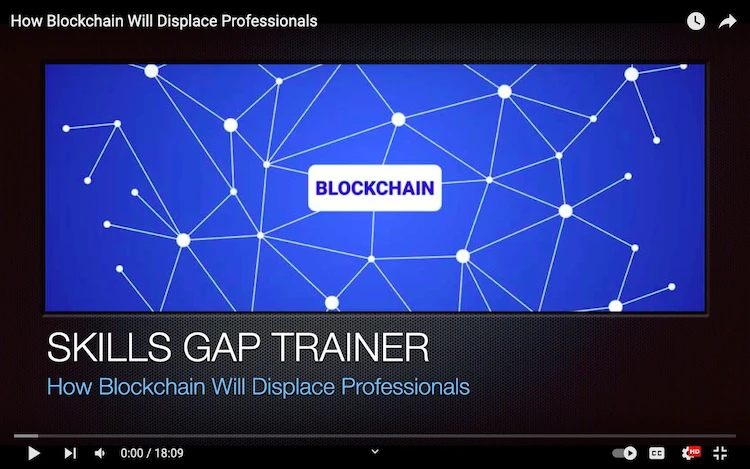The Potential of Blockchain
News professionals, investment professionals and many websites have recently mentioned blockchain with much interest and enthusiasm. While blockchain technology offers a novel way to transact and execute contracts, other technologies have also brought about technical innovations, without having received nearly anything the level of hype that has surrounded the blockchain technology. So what is so special about blockchain that it has received and is receiving such a high regard and a promising forecast? Why is it that experts are saying things such as “Blockchain is the next generation internet, an “internet of value”.”? The hype surrounding blockchain may be well deserved.

Blockchain is a technology that can fundamentally alter the efficiencies of governments, organizations and many professionals in regards to the exchange of “value”. The technology has a general and a widespread applicability to a large set of industries. There are many potential beneficiaries, both on the organizational side and on the client side. In addition, the recent price movements in the cryptocurrency space has attracted much international attention, and this has only served to further enhance the belief in the potential of blockchain technologies in business endeavours. These beliefs are attracting investment to the sector. Consequently, there are numerous blockchain start-ups that are working to create “blockchain variants” of many of the different popular software applications of today. Most importantly, the ability for blockchain to quickly enhance the efficiency of almost any industry, gives it a revolutionary potential.

What is Blockchain?
Blockchain is a decentralized system that offers less risk than a traditional centralized system. All of the information is distributed and encrypted, meaning that it cannot be manipulated, hacked and tampered with. Blockchain also uses innovative programming code that provides a “trust mechanism” directly online, instead of the current reliance on “professional intermediaries” for support and processing. By leveraging a “network based consensus system”, the network itself is able to provide “trust”, therefore the blockchain can provide business transactions directly. This removes the need for the services of many professionals and businesses, many of which simply exist to act as a trusted intermediary. While traditional online systems are only able to transfer information, copies of files back and forth between users, blockchain systems are able to transfer originals, or the “actual value”. Items of “value” such as certificates, currency, land titles, equities, deeds and other valuable assets can be exchanged, transferred or managed securely. For example, under the traditional banking system, if one wished to transfer money online between users, this would not be possible without involving an intermediary such as a bank or a payment processor. However, with the blockchain system, one can implement all of the typical financial intermediary functions, functions such as the ability to handle contracts, identification and transactions. This idea is novel, and presents huge implications for institutions that process similar functions to the functions which blockchain can provide.
Blockchain allows users to come to an agreement without a professional, broker or intermediary. This is a concern for businesses that offer use cases that can be automated through blockchain. Specifically, it is the “ability to enter and establish contracts” that is so threatening to the wide set of institutions and professional businesses which are threatened by this idea. This ability has applications far beyond the financial industry. Programming code is very expressive. Since the blockchain can store code, code can be used to express or make any type of contract between users. The code simply checks for a set of pre-programmed conditions, and when the conditions are fulfilled, then the “smart contracts” are filed in an automatic fashion. This idea means that intermediaries that often specialize in helping clients to enter and establish contracts can be emulated with software algorithms. This is profound, seeing as though much of the work, which many professionals do, deals with arranging for contracts between individuals.

Industries
Blockchain technologies can disrupt many industries. The technology has a wide applicability to a variety of industries. Here are some examples of use cases:
retail, online data storage, crowd funding, online music, private transport, energy management, online music, consulting, cyber security, real estate, insurance, government, travel, aviation, solar energy, voting, credit histories, crypto exchanges, prediction markets, insurance, healthcare, law enforcement, energy management, real estate, digital identity, pubic and corporate governance, gun tracking, internet of things, car leasing, video streaming, publishing, human resources management, ride-sharing, 3d printing/manufacturing, financial services, proof of identity, digital security trading, online gaming, automobiles, shipping, telecom, electoral processes, identity services, communication, land tenure, medicine, education, commodity-backed currency, retail luxury, photography, banking, messaging apps, hedge funds, internet identity & DNS, crowd funding, critical infrastructure security, ride sharing, internet advertising, education and academia, legal, networking, car leasing and sales, industrial IOT, cloud storage, cloud computing, medical records, forecasting, payments, music/entertainment rights and IP, stock trading, supply chain management, sports management, currency exchange, currency remittance, proof of ownership, foreign aid, land title, government and public records, wills and inheritances, charity, banking, cross border payments, government, business governance, libraries, voting, fishing, public assistance, land titles, security, logistics, copyright and many more.
Nowadays, most industries deal with the transactions or data, which is why blockchain has so many use cases. Since the improvements simultaneously impact society from all sectors, then the technology could lead to great improvements in efficiency.
What Will Happen To The Job Opportunities In The Disrupted Industries
Blockchain is appealing to business because it can increase the efficiency of operations. But what exactly does this mean? What isn’t immediately obvious is that the “efficiency” improvement refers to the “intermediary” occupational roles, which will no longer be required as part of the workflow. So if fewer workers are required, does this not mean that there exists the possibility that some work functions, and consequently some workers will no longer be necessary?
Unfortunately for entry-level of mid-level professionals who perform many intermediary commercial transactions, there is a risk that this type of work will be automated in the near future. In today’s work environment, professionals seek out the highly sought after professional designations for the inherent “exclusivity” and “trust” that is associated with these designations. This enables people who achieve this status to attract clients while also working under the guidelines, rules and regulations of the regulatory authority set up for their particular industry. The professionals are able to use their status to offer “valid” services that come with a “seal of approval” from their regulatory authority. Workers such as chartered accountants, chartered financial advisors, insurance agents, investment advisors, solicitors, realtors, notaries, lawyers are trusted by the clients due to the fact that their professional status conveys an “implicit and ethical, safe, equitable, trustworthy and legal capacity perform the required transaction”. Services at this level are often too expensive for most. Though blockchain can improve the cost for clients, this would only achieved due to the professionals, which would no longer be involved in some of the commercial transactions.
Job Opportunities Could Decline
Entry-level and middle-level professional work is at risk from the automation that can be achieved through the use of blockchain technologies. While it is often the case that proponents of blockchain adoption tout the enhanced efficiencies and cost savings which blockchain technology use can bring, it is often not mentioned that what the “efficiencies” refers to, is actually the reduction in the use of human labour. So while organizations are able to save billions of dollars, the savings is mostly achieved through the decline in available job opportunities.
Case Study: Financial Industry

Blockchain technologies can automate the key financial services functions. Since payment processors and banks would not be needed in transactions processing, blockchain technologies can streamline the financial industry into a system that does not need intermediary institutional support. This idea threatens many of the millions of workers who are employed in financial institutions worldwide. If banks decide to postpone the adoption of blockchain technologies (such as cryptocurrencies), then there is a risk that star-ups could upend the financial systems altogether by challenging the banks, and jobs will be lost at the banks. If the banks adopt blockchain, jobs will still be lost due to the efficiency improvements. Whether or not they do or do not adopt blockchain, there is a threat to jobs.
This situation is similar to how robotics in manufacturing has affected the sector. While workers used to assemble machines by hand, this was rendered an irrelevant, unnecessary, inefficient and obsolete method with the advent of robotics in manufacturing. Similar to this development, blockchain’s “efficiency” allows for human labour to be replaced with well-designed algorithms. With precise and automated blockchain systems, functions such as transaction support, customer service, payments processing, conflict resolutions, risk support, fraud prevention and others are no longer part of the process. In addition, since cash is avoided altogether, why would anyone need teller machine support, security guards and vault operators? The use of a blockchain system can have ripple effects along the entire support system for a financial organization or any other organization.
Blockchain Skills For Professionals
Skills relating to blockchain technologies are a top priority for many tech recruiters. As such, job seekers who interview and mention blockchain expertise definitely stand out among their peers. They stand out as being ready and up to date. This interest blockchain expertise is also visible online on the popular job search websites, where an ever increasing amount of blockchain postings are listed.
A common misconception regarding blockchain is that it is only necessary to study it if you plan on doing the programming work. However, the technology is complicated, and as a result, one can easily come off as an uneducated fool when attempting to explain what it is and what are the applications. Blockchain courses are therefore essential for both the programmers and the non-programmers. Further, it is especially important for managers and other business professionals to understand blockchain technology, as they are in a position to make plans and execute the required action to stay ahead in the competitive game. As for programmers, it is especially important to understand smart contracts, as these will enable a new generation of applications and projects.
As such, we have put together a listing of some of the top certificate programs, specializations and courses to take in order to prepare for a world where blockchain technologies achieve a widespread distribution in industry. The courses we have chosen feature the latest content, are presented by the top institutions, and are offered at incredibly affordable prices.
“Blockchain Fundamentals” Professional Certificate
University of California, Berkeley, available at edX

Harness the power of blockchain and cryptocurrencies. Develop the skills to future-proof your career.
This certification will teach cryptocurrency knowledge; specifically it will cover Bitcoin, distributed ledger technology, and also offer general look at blockchain technology. It covers the information from both the perspective of a technician and that of a businessperson. Since blockchain required knowledge is fast becoming an essential requirement in many leading edge business environments, it makes sense to future proof a career by learning a bit about the essentials of the technology. Also, it is not just the programming and the researchers that can benefit from this information, but a wide array of professionals across a diverse set of industry can make use of this knowledge to better the initiatives within their respective companies.
“Blockchain for Business” Professional Certificate
The Linux Foundation, available at edX

Discover how distributed-ledger blockchain technologies are changing industries and what this emerging space means for you and your company.
Many companies will need their business professionals to understand the blockchain ecosystem. Simply put, upcoming competitive opportunities can be realized, or threats defended against, only when there is sufficient understanding of the technology among the workers. The “Blockchain for Business” Professional Certificate is aimed at preparing business professionals with the requisite blockchain understanding. After taking the certificate, business professionals should be able to explain blockchain technology, explain the impact of blockchain in the world, explain the possible use cases, and realize the potential use of the technology within their sector. The certificate program also provides the student with a familiarity of Hyperledger, as well as real world use via the installation of Hyperledger frameworks or via the building of simple applications on top of Hyperledger frameworks.
“Blockchain” Specialization
The State University of New York / University at Buffalo, available at Coursera

Innovate with the Next Frontier in Technology. Learn how the blockchain is leading to a paradigm shift in decentralized application programming.
This specialization offers one of the more comprehensive introductions to blockchain technology that is available on the internet. The students learn about the essentials of blockchain, smart contracts, decentralized applications and the blockchain platforms. As part of the “Blockchain Basics” course, the students learn about the Bitcoin and Ethereum Protocols. As part of the “Smart Contracts” course, the students learn about the design, coding, deployment and execution of a smart contract. As part of the “Decentralized Applications” course, the students learn about the design and development of decentralized applications. As part of the “Blockchain Platforms” course, students learn about the ecosystem.
“IBM Blockchain Foundation for Developers” Course
IBM, available at Coursera

The course covers concepts of blockchain from the developer perspective. It is aimed at developers who have not yet worked with blockchain. Video lessons are used to describe advanced concepts such as methods of building blockchain networks. It is useful to know how to write a bit of JavaScript codes, how to use the command line, as well as, some general object-oriented programming. These skills help the student to complete the labs. The course requirements include building blockchain networks and creating applications.
“Blockchain – Foundations and Use Cases” Course
ConsenSys Academy, available at Coursera

This is an introductory course to blockchain. The course is suitable for both programmers and non-programmers. The first three parts of the course feature information about the underlying technology. The fourth part of the course goes much further into an analysis of Ethereum and the capabilities of modern blockchains.
Conclusion

Though blockchain systems have not yet been sufficiently developed to the point where they can be deployed on a large scale across the various industries, work will progress quickly now that the ideas are out in the public domain. The rapid pace of advancement that is likely to occur in the space will lead to solutions that enable businesses to replace workers with efficient blockchain systems. As such, workers should begin to prepare for this eventuality as soon as possible. Since the replication of high level skills and tasks are not the end goal of these systems, working to attain “high-level” skills would be a good measure to take as a preparation for unknown change in the “low level” and “middle-level” skill categories. Luckily, it will take time for solutions to be deployed in real world use cases, since there are a lot of regulatory, social and work regulations which have been set up throughout time.

Related Content:
Related books and resources:
“Inventing Bitcoin: The Technology Behind The First Truly Scarce and Decentralized Money Explained“ by Yan Pritzker. This book provides insights into the basic principles of Bitcoin and blockchain technology, which is essential for understanding the disruptive potential of blockchain.
“The Starfish and the Spider: The Unstoppable Power of Leaderless Organizations“ by Ori Brafman and Rod A. Beckstrom. It explores the concept of decentralization, which is fundamental to blockchain technology, and its implications for leaderless organizations.
“Blockchain Applications – Transforming Industries, Enhancing Security, and Addressing Ethical Considerations“. This edited volume covers diverse applications of blockchain technology, from cyber-physical systems to legal challenges and market challenges in NFTs, providing a comprehensive overview of how blockchain can impact various sectors.
“Geneva 21: The Impact of Blockchain Technology on Finance: A Catalyst for Change“ by Casey, M., Crane, J., Gensler, G., Johnson, S., and Narula, N. This report discusses the impact of blockchain on the financial services sector and beyond, covering the basics of the technology, as well as its challenges and opportunities.
“The Truth Machine: The Blockchain and the Future of Everything” by Michael J. Casey and Paul Vigna. This book looks into the economic, political, and social impact of blockchain technology and discusses its potential to transform industries.
“Blockchain Revolution: How the Technology Behind Bitcoin and Other Cryptocurrencies Is Changing the World“ by Don Tapscott and Alex Tapscott. It provides an overview of blockchain’s potential to disrupt traditional business models and its implications for the economy, society, and politics.
“Blockchain: Blueprint for a New Economy” by Melanie Swan. This resource is valuable for those interested in understanding the potential of blockchain technology and its applications in business and society.
“Mastering Bitcoin: Programming the Open Blockchain“ by Andreas M. Antonopoulos offers a comprehensive look into Bitcoin’s inner workings, particularly valuable for programmers and developers.
“Inventing Bitcoin: The Technology Behind The First Truly Scarce and Decentralized Money Explained“ by Yan Pritzker, which helps readers understand the foundational principles behind Bitcoin and its blockchain technology.
“The Basics of Bitcoins and Blockchains“ by Antony Lewis provides an introduction to cryptocurrencies and the underlying technology for those new to the field.
“Blockchain Bubble or Revolution: The Future of Bitcoin, Blockchains, and Cryptocurrencies“ by Neel Mehta, Aditya Agashe, Parth Detroja offers diverse perspectives on the future and potential of blockchain technology and Bitcoin.
“Build Your First Ethereum DApp“, a practical guide to creating distributed applications on the Ethereum platform, is especially suited for developers interested in Ethereum and smart contracts.
“The Blockchain Developer: A Practical Guide for Designing, Implementing, Publishing, Testing, and Securing Distributed Blockchain-based Projects“ by Elad Elrom, a comprehensive manual for Ethereum, NEO, Bitcoin, EOS, and Hyperledger project development.
“Blockchain Technology Explained“ by Alan Norman, which delves into how blockchain works beyond just Bitcoin and financial applications.
“Blockchain for Dummies“ by Tiana Laurence, offering a clear overview of blockchain technology tailored for beginners.
“Cryptoassets: The Innovative Investor’s Guide to Bitcoin and Beyond“ by Chris Burniske & Jack Tatar, which provides insight into valuing digital assets and managing a crypto investment portfolio.
To see our Donate Page, click https://skillsgaptrainer.com/donate

